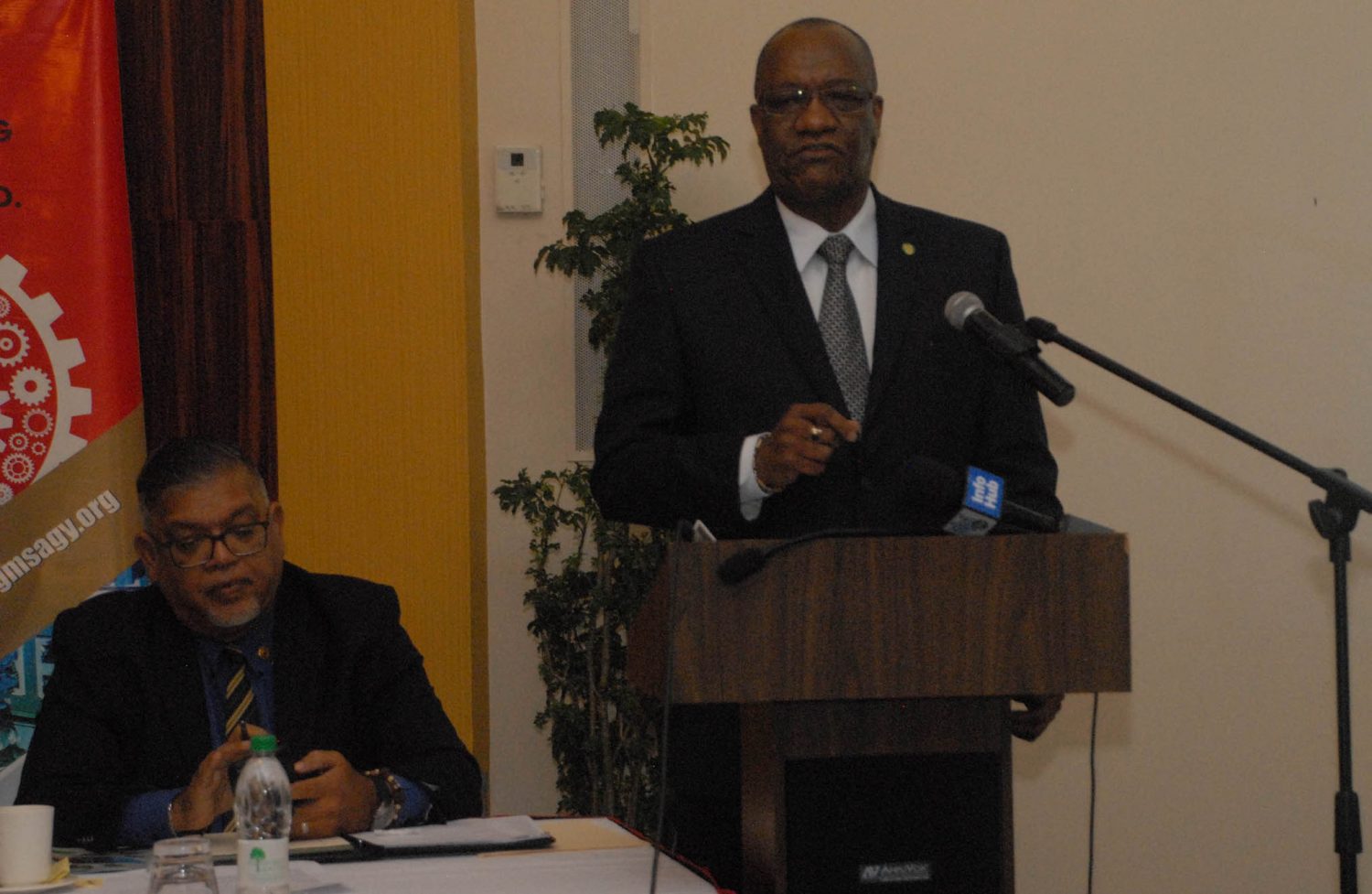Asserting that the growth of the country’s manufacturing sector is inextricably linked to the creation of a stable and reliable electricity supply, Minister of State Joseph Harmon on Wednesday told the Annual General Meeting of the Guyana Manufacturing & Services Association (GMSA) that the APNU+AFC administration is currently engaged in discussions that could likely lead to the commercial use of natural gas from the country’s offshore resources as “a transitional fuel for Guyana’s economy. It is premised on what he said was an acceptance of the reality that “the availability of cheap, reliable energy supplies is crucial to sustaining and improving our manufacturing capacity”, a point that has been made ad nauseam by the private sector over several years.
Harmon, to generous applause, disclosed that the idea of pressing the country’s natural gas resources into improving the reliability of the country’s electricity supply system “could involve the landing of a pipeline to bring gas onshore as well as the construction of a new power generation facility. This initiative envisions a complementary use of natural gas with renewable energy”, Harmon said, adding that the Guyana Power and Light Company (GPL) has already moved to invite Expressions of Interest, in the interim, for the development and installation of a 50-megawatt capacity natural gas-fired power plant.
In his earlier address to the forum, serving GMSA President Shyam Nokta had underlined the wider private sector’s oft-repeated concerns over electricity related challenges facing the business community as a whole, including its call for “the removal of VAT on electricity” and having “adjusted/reduced tariffs for manufacturing entities based on performance thresholds and incentives for renewable energy technologies along with the urgent need for action to address the transmission and distribution system and advance mature and feasible initiatives for renewable energy.”
Harmon disclosed, meanwhile, that the Public Utilities Commission (PUC) is currently reviewing the grid code and that the review ‘will create the opportunity for renewable energy to be integrated through the inclusion of independent power producers” a remark that could see the renewal of the offer made by a local businessman to have his company’s power supply infrastructure connected to the national grid.
In the longer term, Harmon said, the national grid will remain at the heart of the country’s electricity supply regime against the backdrop of what he said were ongoing “initiatives and efforts” to ensure its strengthening and stabilization. These initiatives, according to the Minister of State, are expected to be underpinned by the implementation of the Public Utility Upgrade Programme (PUUP) the main objectives of which are to enhance the operational efficiency and corporate performance of GPL in order to better position the company “to supply electricity in a sustainable manner over the long term.” Harmon said that while the issues regarding reliable electricity supply had engaged successive political administrations in Guyana over a long period of time he believed that the country is now better positioned to address the electricity challenge “in fundamental ways and provide meaningful and decisive solutions” to the country’s power supply problems.






